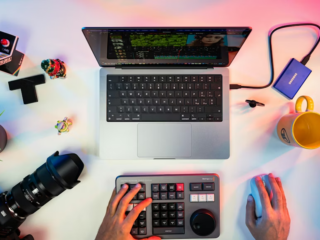
Logged into my casino account on the family laptop last March. Same device I’d used for months without issues. This time, my account was locked immediately with a message about “security verification required.” Support informed me that their system detected multiple accounts accessing from the same device and IP address.
It turned out that my brother had created his own casino account two weeks earlier—using the same laptop, the same internet connection, and the same household. The casino’s fraud detection system flagged us both as potential bonus abusers running multiple accounts. It took five days and extensive documentation to prove that we were different people living at the same address.
That incident taught me how shared computers and household networks can create security nightmares for casinos that most families never anticipate.
Why Casinos Flag Shared Devices
Casinos track device fingerprints—unique identifiers that combine your browser type, screen resolution, installed fonts, time zone, language settings, and dozens of other data points. When two accounts share identical device fingerprints, their systems assume one person is running multiple accounts.
Rooli offers a 4-part welcome package totaling €4,000 + 475 free spins, plus crypto bonuses up to 3 BTC across four deposits with MOON codes, VIP packages with ELITE and LUX codes, and 10 free spins no deposit on Book of Cats—all requiring €30 minimum deposits with 35x wagering and €5,000 max cashout. Their security systems, like most casinos with extensive bonus offerings, actively monitor for household account duplicates.
The problem intensifies when family members claim welcome bonuses. From the casino’s perspective, identical device fingerprints claiming multiple first-deposit bonuses look exactly like bonus fraud.
The IP Address Problem
Beyond device fingerprints, casinos track IP addresses. Every device in your household shares the same external IP when connecting to the internet. Two accounts from the same IP address trigger immediate scrutiny.
My brother and I both registered with different email addresses, payment methods, and birthdates. Didn’t matter. The shared IP and device fingerprint combination was enough to flag both accounts for manual review.

Support eventually asked for: government-issued IDs for both of us, utility bills showing we lived at the same address, bank statements proving separate finances, and selfies holding our IDs next to the family computer.
Five days of waiting while they verified we weren’t one person committing fraud.
The Withdrawal That Never Came
The restriction hit right after I’d won €280 playing https://slotspeak.net/colossal-reels-slot-games/ — those seven distinctive games from WMS, Skywind Group, and Games Global with the dual-reel setup, and I had requested a withdrawal the day before my brother registered his account. His registration triggered the security review that locked both our accounts and froze my pending withdrawal.
Casino policy stated that they couldn’t process withdrawals during active security investigations. My €280 sat in limbo for five days while they investigated whether we were legitimate household members or one person running a bonus abuse scheme.
Eventually approved, but the stress of watching my withdrawal frozen—wondering if they’d confiscate everything—was worse than any losing streak.
Roommates Face Identical Issues
Talked to support about preventing future problems. They mentioned that college roommates and apartment sharers constantly trigger the same flags. Three roommates create accounts at the same casino, all claiming welcome bonuses from the same apartment’s WiFi—their system detects one IP address, three accounts, and three welcome bonuses, and immediately assumes fraud.
Some casinos handle this better than others. The best ones let you pre-register household members by submitting documentation upfront. Most just wait for the inevitable security flag, then make you prove legitimacy after your account’s already locked.
Public WiFi Makes It Worse
The family computer issue extends to public networks. Playing at a café where ten other people might be using the same casino? You’re all sharing one IP address. If someone else at that café has an account at your casino, you risk triggering duplicate account flags.
I’ve heard of players whose accounts got flagged simply because they logged in from university WiFi, where hundreds of students access the same casino. The shared IP creates false positives that the security systems can’t distinguish from actual fraud.
The Permanent Solution
After the five-day restriction, I switched to playing exclusively on my phone using mobile data instead of home WiFi. My brother continues using the family laptop on our home network. Different devices, different IP addresses (mobile data vs home broadband), different device fingerprints—no more security flags.
Inconvenient solution, but it works. Some families assign specific devices to specific players to avoid fingerprint overlaps. Others contact casino support before the second family member registers, asking how to avoid triggering fraud detection.
The simplest approach is to avoid using shared devices or networks for online gambling. Each person needs their own device with their own internet connection to avoid casino security systems flagging you as the same person running multiple accounts.
Shared family computers seem harmless until casino security systems lock both accounts and freeze your withdrawals. The verification process costs time, stress, and sometimes winnings if you can’t prove you’re actually different people. Save yourself the headache—play on separate devices.












